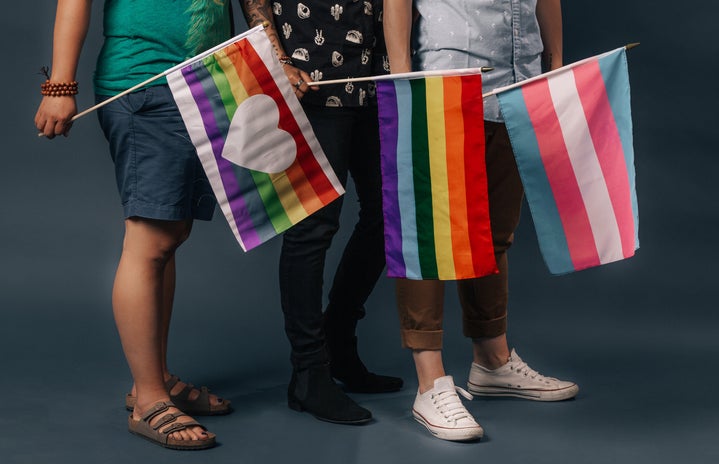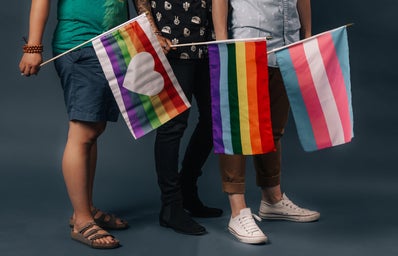Quality queer representation in media is few and far between. What we do get is usually riddled with problematic storytelling and stereotypes, such as the “bury your gays” trope. Often, writers will vaguely suggest certain characters are LQBTQ+ or in a relationship, but never deliver. This common occurrence is known as “queerbaiting,” or a “…marketing technique for fiction or entertainment in which creators hint at, but then do not depict, same-sex romance or other LGBTQ+ representation,” according to Wikipedia. Famous cases of queerbaiting include Sherlock Holmes and John Watson from the BBC series Sherlock, and Betty Cooper and Veronica Lodge from Riverdale. The goal of queerbaiting is to draw in queer viewers by enticing them with LGBTQ+ representation.
The real problem begins when fans accuse celebrities of queerbaiting. Since celebrities are not fictional, they cannot queerbait. Celebrities like Harry Styles and Olivia Rodrigo have been accused of queerbaiting. These accusations stem from the star either never openly labeling their sexuality or posting a photo where they appear close to another person of the same gender. The most recent case of a celebrity thought to be queerbaiting is Kit Connor, one of the stars of the Netflix show Heartstopper. It is a queer coming-of-age drama that originated as a comic series by Alice Oseman. In the show, Connor plays Nick Nelson, a teenage boy coming to terms with his sexuality as he develops feelings for his friend, Charlie Spring. Connor was forced to come out as bisexual on October 31 after fans long speculated about his sexuality. Accusations of queerbaiting continued to flow after he was spotted holding hands with his A Cuban Girl’s Guide to Tea and Tomorrow co-star Maia Reficco. Fans assumed Connor was straight because he had never openly confirmed his sexuality. Forcing someone to come out of the closet is considered “outing”, or disclosing someone’s sexual orientation or gender identity without their consent.
Forcing Connor out of the closet also negates one of the messages in Heartstopper. Throughout the first season, Nick struggles to come to terms with his identity as his relationship with Charlie progresses. Nick’s friends support him throughout his journey and give him the space he needs to realize his bisexuality. His journey of self-discovery is a central part of the show and makes many viewers feel represented. Many fans of Heartstopper did not respect Connor’s decision to not label his sexuality and invaded his privacy doing so. Fans often don’t realize the invasiveness of asking celebrities personal questions because they see them as larger than life. Nobody, famous or not, should be forced into coming out.


